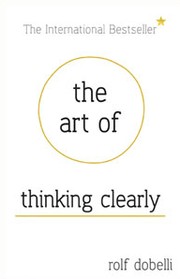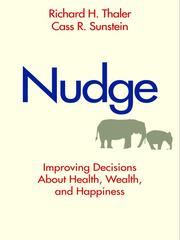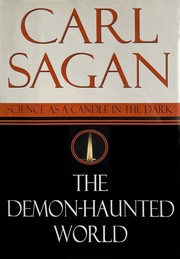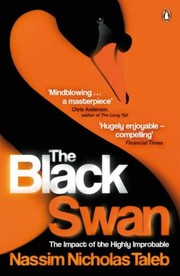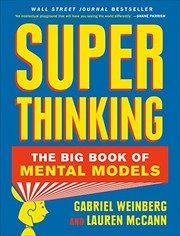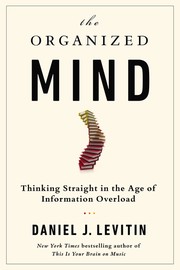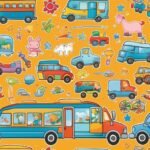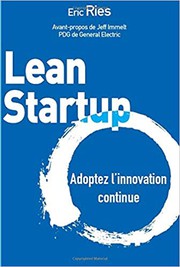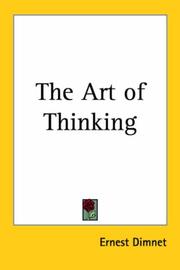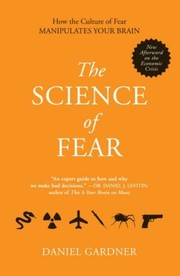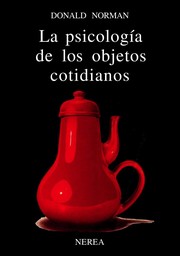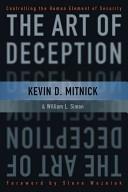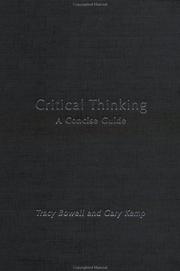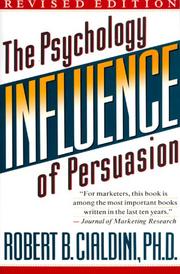Are you looking to sharpen your critical thinking skills? Look no further! We’ve curated a list of the 20 best books about critical thinking that will challenge your perspective, enhance your problem-solving abilities, and empower you to think more critically in all aspects of life. Whether you’re a student, professional, or simply someone who wants to improve their decision-making skills, there’s a critical thinking book on this list that’s perfect for you. From classics to modern gems, these books cover a wide range of topics and approaches to critical thinking. Get ready to expand your mind and unleash your intellectual potential with these must-read critical thinking books!
Contents
- 1 20 Best Critical Thinking Books
- 2 Thinking, Fast and Slow
- 3 The Art of Thinking Clearly
- 4 Nudge: Improving Decisions About Health, Wealth, and Happiness
- 5 Predictably Irrational: The Hidden Forces That Shape Our Decisions
- 6 The Demon-Haunted World: Science as a Candle in the Dark
- 7 The Black Swan: The Impact of the Highly Improbable
- 8 Super Thinking: The Big Book of Mental Models
- 9 The Righteous Mind: Why Good People Are Divided by Politics and Religion
- 10 The Organized Mind: Thinking Straight in the Age of Information Overload
- 11 The Innovator’s Dilemma: When New Technologies Cause Great Firms to Fail
- 12 The Lean Startup: How Today’s Entrepreneurs Use Continuous Innovation to Create Radically Successful Businesses
- 13 The Upside of Irrationality: The Unexpected Benefits of Defying Logic at Work and at Home
- 14 The Art of Thinking
- 15 The Believing Brain: From Ghosts and Gods to Politics and Conspiracies—How We Construct Beliefs and Reinforce Them as Truths
- 16 The Science of Fear: How the Culture of Fear Manipulates Your Brain
- 17 The Design of Everyday Things
- 18 The Art of Deception: Controlling the Human Element of Security
- 19 Critical Thinking: A Concise Guide
- 20 Influence: The Psychology of Persuasion
- 21 The Attacker’s Advantage: Turning Uncertainty into Breakthrough Opportunities
- 22 Final Thoughts on Best Critical Thinking Books
- 23
20 Best Critical Thinking Books
Thinking, Fast and Slow
by Daniel Kahneman
“Thinking, Fast and Slow” by Daniel Kahneman is a fascinating exploration of the two systems that drive the way we think: the fast, intuitive and emotional system, and the slow, deliberate and logical system. Through engaging examples and thought-provoking experiments, Kahneman delves into the complexities of human decision-making and the biases that often lead us astray.
This critically acclaimed book about critical thinking challenges readers to question their own thought processes and consider the ways in which our minds can be both incredibly efficient and surprisingly flawed. Kahneman’s insights into the psychology of judgment and decision-making provide valuable lessons for anyone seeking to improve their critical thinking skills and make more rational choices.
With its accessible writing style and compelling real-world examples, “Thinking, Fast and Slow” is a must-read for anyone interested in understanding the complexities of human cognition and honing their critical thinking abilities.
The Art of Thinking Clearly
by Rolf Dobelli
The Art of Thinking Clearly by Rolf Dobelli is a thought-provoking book about critical thinking. Dobelli explores the common cognitive errors and biases that can cloud our judgment and decision-making. Through engaging anecdotes and real-life examples, he sheds light on the ways in which our minds can lead us astray, and offers practical strategies for overcoming these obstacles. The book covers a wide range of topics, from the influence of emotions on decision-making to the pitfalls of overconfidence and the dangers of confirmation bias. Dobelli’s clear and accessible writing style makes this critical thinking book an enjoyable and enlightening read for anyone interested in understanding the workings of the human mind and improving their decision-making skills. Whether you’re a business professional, student, or simply someone who wants to sharpen their thinking, The Art of Thinking Clearly offers valuable insights and practical advice for navigating the complexities of everyday life.
Nudge: Improving Decisions About Health, Wealth, and Happiness
by Richard H. Thaler and Cass R. Sunstein
Nudge: Improving Decisions About Health, Wealth, and Happiness is a groundbreaking book on critical thinking by Richard H. Thaler and Cass R. Sunstein. This insightful and thought-provoking book explores the concept of ‘nudging’ as a way to improve decision-making in various aspects of our lives. The authors delve into the idea that small, subtle changes in the way choices are presented can have a significant impact on the decisions people make.
Thaler and Sunstein use real-world examples and research to demonstrate how nudges can be used to guide individuals towards better choices, without restricting their freedom. They also discuss the ethical implications of nudges and how they can be used to promote positive behavior change in areas such as health, finance, and environmental conservation.
Overall, Nudge offers a compelling argument for the power of choice architecture and provides practical insights for individuals, policymakers, and organizations seeking to influence decision-making in a way that benefits both individuals and society as a whole.
Predictably Irrational: The Hidden Forces That Shape Our Decisions
by Dan Ariely
Predictably Irrational: The Hidden Forces That Shape Our Decisions by Dan Ariely is a captivating exploration of the irrationality that influences our decision-making processes. In this thought-provoking book, Ariely delves into the psychological factors that drive our choices, revealing the surprising ways in which our minds can be swayed by hidden forces.
Ariely, a renowned behavioral economist, uses engaging anecdotes and compelling experiments to shed light on the irrational tendencies that affect our everyday decisions, from purchasing products to making important life choices. Through his insightful analysis, Ariely challenges readers to reexamine their assumptions about human behavior and consider the implications of these hidden forces on their own lives.
Whether you’re a fan of psychology, economics, or simply interested in understanding the complexities of human decision-making, Predictably Irrational offers a fascinating journey into the quirks of the human mind. This book is a must-read for anyone seeking to enhance their understanding of the intricate world of decision-making and gain valuable insights into the fascinating realm of behavioral economics.
The Demon-Haunted World: Science as a Candle in the Dark
by Carl Sagan
The Demon-Haunted World: Science as a Candle in the Dark by Carl Sagan is a captivating book on critical thinking that delves into the importance of scientific reasoning and skepticism in a world filled with superstition and pseudoscience. Sagan, a renowned astrophysicist and science communicator, presents a compelling argument for the value of critical thinking in the face of widespread ignorance and misinformation.
Through engaging anecdotes and thought-provoking examples, Sagan encourages readers to question authority, think critically, and embrace the wonders of scientific discovery. He emphasizes the need for a skeptical mindset in order to combat the prevalence of irrational beliefs and unfounded claims.
This critical thinking book serves as a powerful reminder of the transformative power of science and reason, offering a beacon of light in a world overshadowed by irrational fears and unexamined beliefs. Sagan’s eloquent prose and impassioned plea for rational thinking make The Demon-Haunted World a must-read for anyone seeking to cultivate a more skeptical and scientifically informed worldview.
The Black Swan: The Impact of the Highly Improbable
by Nassim Nicholas Taleb
The Black Swan by Nassim Nicholas Taleb is a thought-provoking book on critical thinking that challenges conventional wisdom and our understanding of probability. Taleb introduces the concept of “black swan events,” which are rare, unpredictable, and highly impactful occurrences that have a profound influence on the world. Through engaging storytelling and insightful analysis, he emphasizes the importance of being open to the possibility of these unexpected events and the limitations of prediction and forecasting.
Taleb’s book about critical thinking encourages readers to reevaluate their assumptions, embrace uncertainty, and develop a more robust framework for decision-making in an unpredictable world. He advocates for a mindset that is resilient, adaptable, and able to thrive in the face of uncertainty. The Black Swan is a critical thinking book that will challenge your perspectives and inspire you to approach the future with a more nuanced understanding of probability and risk.
Super Thinking: The Big Book of Mental Models
by Gabriel Weinberg and Lauren McCann
Super Thinking: The Big Book of Mental Models is a comprehensive guide to improving your decision-making and problem-solving skills. Written by Gabriel Weinberg and Lauren McCann, this book on critical thinking presents a wide array of mental models that can help you navigate complex situations and make better choices in both your personal and professional life.
With practical examples and engaging narratives, the authors demonstrate how to apply these mental models to various scenarios, allowing readers to develop a deeper understanding of critical thinking and its real-world applications. Whether you’re a student, a business professional, or simply someone looking to enhance their cognitive abilities, this book about critical thinking offers valuable insights and strategies to sharpen your analytical thinking and decision-making prowess.
By exploring different perspectives and approaches to problem-solving, Super Thinking equips readers with the tools to tackle challenges more effectively and make sound judgments in any given situation. It’s a must-read for anyone seeking to expand their critical thinking abilities and enhance their mental acumen.
The Righteous Mind: Why Good People Are Divided by Politics and Religion
by Jonathan Haidt
The Righteous Mind: Why Good People Are Divided by Politics and Religion by Jonathan Haidt is a thought-provoking exploration of the psychological foundations of morality and the ways in which it shapes our political and religious beliefs. Haidt, a social psychologist, delves into the complexities of human moral reasoning, arguing that our moral judgments are influenced by a combination of intuition, emotion, and reasoning. He presents a compelling case for the role of moral psychology in understanding the divisions that exist in society, particularly in the realm of politics and religion.
This critical thinking book challenges readers to consider the ways in which our moral instincts affect our decision-making processes and how our perceptions of right and wrong can lead to differing perspectives on contentious issues. Haidt’s engaging writing style and well-researched insights make this book a must-read for anyone interested in understanding the psychological underpinnings of moral and political divides.
The Organized Mind: Thinking Straight in the Age of Information Overload
by Daniel J. Levitin
The Organized Mind: Thinking Straight in the Age of Information Overload by Daniel J. Levitin is a thought-provoking book on critical thinking that delves into the complexities of our modern world. Levitin, a neuroscientist, explores the challenges of navigating through the overwhelming amount of information we encounter on a daily basis. He offers practical strategies for organizing our thoughts, managing our time, and making informed decisions in a world filled with distractions.
Levitin’s engaging writing style and insightful research make this book about critical thinking a must-read for anyone seeking to improve their cognitive abilities and enhance their productivity. By examining the way our brains process and filter information, Levitin provides valuable insights into how we can train our minds to think more clearly and effectively. Whether you’re a student, professional, or simply someone looking to sharpen your critical thinking skills, The Organized Mind offers a wealth of knowledge and actionable tips to help you thrive in the digital age.
The Innovator’s Dilemma: When New Technologies Cause Great Firms to Fail
by Clayton M. Christensen
The Innovator’s Dilemma is a groundbreaking book on critical thinking by Clayton M. Christensen that explores the challenges faced by established companies when disruptive technologies emerge. Christensen argues that successful companies often fail not because they lack vision or competence, but because they are unable to adapt to disruptive innovations that initially seem unattractive or unprofitable. Through in-depth case studies, Christensen demonstrates how companies like Kodak, Blockbuster, and Nokia fell from the heights of success due to their inability to embrace and capitalize on new technologies.
This critical thinking book challenges the conventional wisdom that successful companies should always listen to their customers and focus on sustaining innovation. Instead, Christensen advocates for a different approach, urging companies to invest in disruptive technologies and create new markets. The Innovator’s Dilemma is a thought-provoking and insightful read for business leaders, entrepreneurs, and anyone interested in understanding the dynamics of innovation and disruption in the corporate world.
The Lean Startup: How Today’s Entrepreneurs Use Continuous Innovation to Create Radically Successful Businesses
by Eric Ries
The Lean Startup is a groundbreaking book on critical thinking that challenges traditional business models and offers a new approach to entrepreneurship. Author Eric Ries introduces the concept of continuous innovation, advocating for a lean, agile methodology that allows entrepreneurs to adapt and evolve their business strategies in real-time. Ries emphasizes the importance of rapid experimentation and customer feedback, encouraging entrepreneurs to test their assumptions and make data-driven decisions. This critical thinking book is packed with practical advice and case studies, illustrating how startups can use lean principles to create radically successful businesses. Whether you’re a budding entrepreneur or a seasoned business leader, The Lean Startup offers valuable insights into fostering innovation and staying competitive in today’s fast-paced market. By embracing a mindset of continuous improvement and adaptation, Ries argues that entrepreneurs can mitigate risk and increase their chances of building a sustainable, thriving business.
The Upside of Irrationality: The Unexpected Benefits of Defying Logic at Work and at Home
by Dan Ariely
The Upside of Irrationality by Dan Ariely is a captivating book about critical thinking that challenges the conventional wisdom that rational thinking is always the best approach. Ariely, a renowned behavioral economist, explores the unexpected benefits of defying logic in both our professional and personal lives. Through a series of engaging and thought-provoking stories and experiments, Ariely demonstrates how our irrational behaviors can lead to positive outcomes, such as increased creativity, improved decision-making, and stronger relationships.
Ariely’s book about critical thinking provides valuable insights into the human mind and offers practical advice for harnessing the upside of irrationality. By delving into the quirks and biases that influence our choices, Ariely encourages readers to embrace their irrational tendencies and use them to their advantage. Whether you’re a business leader looking to improve team dynamics or an individual striving for personal growth, The Upside of Irrationality offers a fresh perspective on the power of critical thinking and the potential benefits of defying logic.
The Art of Thinking
by Ernest Dimnet
The Art of Thinking by Ernest Dimnet is a classic book on critical thinking that explores the importance of cultivating a thoughtful mind in a world filled with distractions. Dimnet delves into the art of reflection, contemplation, and deep thinking, presenting it as a skill that can be honed and developed over time. Through insightful observations and thought-provoking anecdotes, Dimnet encourages readers to embrace the power of critical thinking in their daily lives.
This influential book about critical thinking offers readers valuable insights into the art of reasoning, problem-solving, and decision-making. Dimnet’s timeless wisdom and engaging writing style make this critical thinking book a compelling read for anyone seeking to enhance their cognitive abilities and expand their intellectual horizons. Whether you’re a student, professional, or simply a curious mind, The Art of Thinking invites you to explore the depths of your own thoughts and develop a deeper understanding of the world around you.
The Believing Brain: From Ghosts and Gods to Politics and Conspiracies—How We Construct Beliefs and Reinforce Them as Truths
by Michael Shermer
The Believing Brain by Michael Shermer is a captivating exploration of the human mind and its tendency to construct and reinforce beliefs as truths. Shermer, a renowned skeptic and science writer, delves into the psychology behind belief formation, investigating how our brains naturally seek patterns and connections, often leading us to accept unsubstantiated ideas and conspiracy theories. The book offers a fascinating analysis of the cognitive processes that underpin our beliefs, from the evolution of superstitions and religious convictions to the shaping of political ideologies and the embrace of pseudoscientific claims.
With a keen understanding of cognitive psychology and a gift for storytelling, Shermer presents a compelling case for why critical thinking is essential in navigating the complexities of our modern world. The Believing Brain is a thought-provoking and illuminating read that challenges readers to examine their own beliefs and encourages a more rational, evidence-based approach to understanding the world around us. This book on critical thinking is a must-read for anyone interested in understanding the power of belief and the importance of skepticism in an age of misinformation.
The Science of Fear: How the Culture of Fear Manipulates Your Brain
by Daniel Gardner
The Science of Fear: How the Culture of Fear Manipulates Your Brain by Daniel Gardner is a captivating book on critical thinking that delves into the ways in which fear is used to manipulate our thoughts and behaviors. Gardner explores the psychology behind fear, revealing how our brains are wired to respond to perceived threats and how this instinct can be exploited by politicians, marketers, and the media.
Through a combination of scientific research and real-life examples, Gardner illustrates how fear can distort our perceptions and lead us to make irrational decisions. He also offers practical strategies for overcoming the influence of fear, empowering readers to approach information with a more rational and skeptical mindset.
This critical thinking book is an eye-opening and thought-provoking exploration of the ways in which fear can be used to control and manipulate individuals. It is a must-read for anyone interested in understanding the power of fear and developing the skills to think critically in an age of pervasive manipulation.
The Design of Everyday Things
by Don Norman
The Design of Everyday Things by Don Norman is a fascinating exploration of the psychology behind the objects we interact with on a daily basis. This book on critical thinking delves into the importance of good design and how it can enhance our experiences and interactions with the world around us. Norman’s insightful analysis of everyday objects, from door handles to complex digital interfaces, encourages readers to think critically about the design choices that surround them. By understanding the principles of good design, readers can become more conscious and discerning users of technology and products. The book about critical thinking also provides practical advice for designing user-friendly products and interfaces. Whether you’re a designer, engineer, or simply someone interested in the psychology of everyday objects, this critical thinking book will undoubtedly change the way you perceive and interact with the world.
The Art of Deception: Controlling the Human Element of Security
by Kevin D. Mitnick
The Art of Deception: Controlling the Human Element of Security by Kevin D. Mitnick is a fascinating exploration of the ways in which social engineering and psychological manipulation can compromise security systems. Mitnick, a former hacker turned security consultant, delves into the tactics and techniques used by malicious actors to exploit human vulnerabilities, offering valuable insights into the art of deception. Through real-life examples and case studies, Mitnick demonstrates how individuals and organizations can be tricked into divulging sensitive information or unwittingly giving access to secure systems. This book is a must-read for anyone interested in understanding the human factor in security breaches and learning how to protect against them. With its focus on the psychology of deception and the manipulation of human behavior, The Art of Deception is not just a book on critical thinking, but a critical thinking book that sheds light on the intricate ways in which our minds can be exploited for nefarious purposes.
Critical Thinking: A Concise Guide
by Tracy Bowell and Gary Kemp
Critical Thinking: A Concise Guide by Tracy Bowell and Gary Kemp is a must-read for anyone looking to enhance their critical thinking skills. This engaging and practical book on critical thinking offers a comprehensive overview of the key concepts and techniques essential for logical reasoning and effective decision-making. The authors provide clear explanations and numerous examples to help readers understand and apply critical thinking in various contexts, from everyday life to academic and professional settings.
Whether you’re a student, professional, or simply someone who wants to sharpen their analytical abilities, this book about critical thinking is an invaluable resource. It covers topics such as argument analysis, logical fallacies, and the evaluation of evidence, empowering readers to become more discerning and insightful thinkers. With its accessible style and relevant exercises, Critical Thinking: A Concise Guide is a critical thinking book that will inspire and equip you to approach complex issues with greater clarity and confidence.
Influence: The Psychology of Persuasion
by Robert B. Cialdini
Influence: The Psychology of Persuasion by Robert B. Cialdini is a captivating exploration of the psychology behind the art of persuasion. Cialdini delves into the various tactics and techniques used by individuals and organizations to influence others, shedding light on the principles that guide human behavior. Through engaging anecdotes and compelling research, he uncovers the psychology behind our susceptibility to persuasion, offering valuable insights into the ways in which we can defend ourselves against manipulation. This book on critical thinking is a must-read for anyone seeking to understand the forces at play in our decision-making processes and looking to develop a deeper understanding of the psychological strategies used to influence our choices. Cialdini’s work is a fascinating and thought-provoking journey into the realm of persuasion, providing readers with the tools to navigate a world filled with persuasive messages and make more informed decisions.
The Attacker’s Advantage: Turning Uncertainty into Breakthrough Opportunities
by Ram Charan
The Attacker’s Advantage by Ram Charan is a book on critical thinking that provides a fresh perspective on how to navigate the uncertain business landscape. Charan argues that instead of fearing uncertainty, successful leaders should embrace it as an opportunity for breakthrough innovation. The book delves into the mindset and strategies of companies and leaders who have thrived in the face of uncertainty, offering practical insights on how to turn challenges into advantages.
Charan’s approach is both insightful and thought-provoking, making this book about critical thinking a valuable resource for anyone seeking to gain a competitive edge in today’s dynamic business environment. With real-life examples and actionable advice, The Attacker’s Advantage is a must-read for those looking to cultivate a mindset of agility, adaptability, and strategic thinking. It’s not just a critical thinking book; it’s a guide to thriving in the midst of uncertainty and using it to propel your business forward.
Final Thoughts on Best Critical Thinking Books
Exploring the 20 best books about Critical Thinking is an enlightening journey that can expand your mind and sharpen your analytical skills. Whether you’re a student, educator, or simply someone seeking to enhance your cognitive abilities, these books offer valuable insights and practical techniques to cultivate critical thinking. By delving into these thought-provoking reads, you can gain a deeper understanding of how to approach complex issues, make informed decisions, and navigate the complexities of the modern world.
Which book about Critical Thinking is best?
The best book on Critical Thinking can vary with personal preference, but three widely recommended titles are:
- Thinking, Fast and Slow by Daniel Kahneman,
- The Art of Thinking Clearly by Rolf Dobelli,
- Nudge: Improving Decisions About Health, Wealth, and Happiness by Richard H. Thaler and Cass R. Sunstein.
Each offers valuable insights and could be a great starting point.
What are the best books to learn about Critical Thinking?
For those looking to learn about Critical Thinking, there is a wealth of literature that can provide a comprehensive understanding of the subject. Some of the most highly recommended books include:
- Thinking, Fast and Slow by Daniel Kahneman,
- The Art of Thinking Clearly by Rolf Dobelli,
- Nudge: Improving Decisions About Health, Wealth, and Happiness by Richard H. Thaler and Cass R. Sunstein,
- Predictably Irrational: The Hidden Forces That Shape Our Decisions by Dan Ariely,
- The Demon-Haunted World: Science as a Candle in the Dark by Carl Sagan,
- The Black Swan: The Impact of the Highly Improbable by Nassim Nicholas Taleb,
- Super Thinking: The Big Book of Mental Models by Gabriel Weinberg and Lauren McCann,
- The Righteous Mind: Why Good People Are Divided by Politics and Religion by Jonathan Haidt,
- The Organized Mind: Thinking Straight in the Age of Information Overload by Daniel J. Levitin,
- The Innovator’s Dilemma: When New Technologies Cause Great Firms to Fail by Clayton M. Christensen
These books offer a range of perspectives on Critical Thinking, covering various aspects and approaches to the subject.
What are the best books about Critical Thinking?
The best books about Critical Thinking are:
- Thinking, Fast and Slow by Daniel Kahneman,
- The Art of Thinking Clearly by Rolf Dobelli,
- The Lean Startup: How Today’s Entrepreneurs Use Continuous Innovation to Create Radically Successful Businesses by Eric Ries,
- The Upside of Irrationality: The Unexpected Benefits of Defying Logic at Work and at Home by Dan Ariely,
- The Righteous Mind: Why Good People Are Divided by Politics and Religion by Jonathan Haidt,
- The Black Swan: The Impact of the Highly Improbable by Nassim Nicholas Taleb.
Each offers unique insights into the subject. While these books about Critical Thinking are highly regarded, it’s important to note that any list of ‘best’ books is subjective and reflects a range of opinions.
What are the best Critical Thinking books of all time?
Choosing the best Critical Thinking books of all time can vary depending on who you ask, but five titles that are often celebrated include
- Thinking, Fast and Slow by Daniel Kahneman,
- The Art of Thinking Clearly by Rolf Dobelli,
- The Demon-Haunted World: Science as a Candle in the Dark by Carl Sagan,
- The Righteous Mind: Why Good People Are Divided by Politics and Religion by Jonathan Haidt,
- and The Lean Startup: How Today’s Entrepreneurs Use Continuous Innovation to Create Radically Successful Businesses by Eric Ries.
Each of these books has made a significant impact in the field of Critical Thinking and continues to be influential today.


